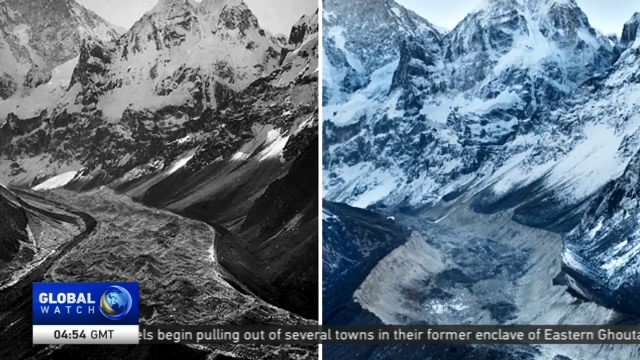
14:21, 25-Mar-2018
Protect And Preserve: Activists urge environmental awareness in Himalayan region

The natural resources of the Himalayas have supported development and livelihoods in many Asian countries. But climate change is casting doubt on how long that can be sustained. This week, think tanks and activists are gathered in Nepal to look at ways to combine development and environment protection in the Himalayan region. Mao Dan reports.
Climate change is taking away our shared heritage and natural resources, fast. These receding glaciers are just one example raised at the Himalayan Consensus Summit in Kathmandu, where participants exchanged views on sustainable development in South Asia. David Molden is the director general of the International Center for Integrated Mountain Development. He says that what happens in the Himalayas will not just affect the region, but the whole world.
DAVID MOLDEN DIRECTOR GENERAL OF ICIMOD "If our water resources change, because of climate change, it's likely to have impacts downstream. So China you have Yellow River and Yangtze River coming from the Himalayas. You already have water scarcity. What that means for the energy resources that's an issue, the food production that's an issue as well. You need the economic development growth, on the other hand, you need to work closely with communities and have the ecological society that pays attention to ecosystems."
In fact, community-based adaptations and solutions are being scaled up in Nepal, through the integrated management of the agricultural, water, forestry and biodiversity sectors.
MAO DAN KATHMANDU "Nepal, as a Himalayan country has already felt the climate change impact on its water resources and living environment. However, the Nepalese people are trying to make some changes through their conservation efforts."
In the process of reconstruction after the 2015 earthquake, energy-saving and heritage-preserving ideas were incorporated into re-building places such as the iconic Durbar Squares.
SUJEEV SHAKYA, SECRETARY GENERAL HIMALAYAN CONSENSUS INSTITUTE "Now people are building their houses back like the houses couple of hundred years ago, which means people are saying if I conserve it will get into a better heritage hotel and I can make more money and then I would recycle my water, I would recycle my trash. If you do all these, if you can work on conservation and preservation and still make good economic sense."
And a special key message from the Summit is that once awareness and consensus is raised, new technologies represented by AI robots can play a positive role in growth and the environment, for the larger good of mankind. Mao Dan, CGTN, KATHMANDU.

SITEMAP
Copyright © 2018 CGTN. Beijing ICP prepared NO.16065310-3
Copyright © 2018 CGTN. Beijing ICP prepared NO.16065310-3